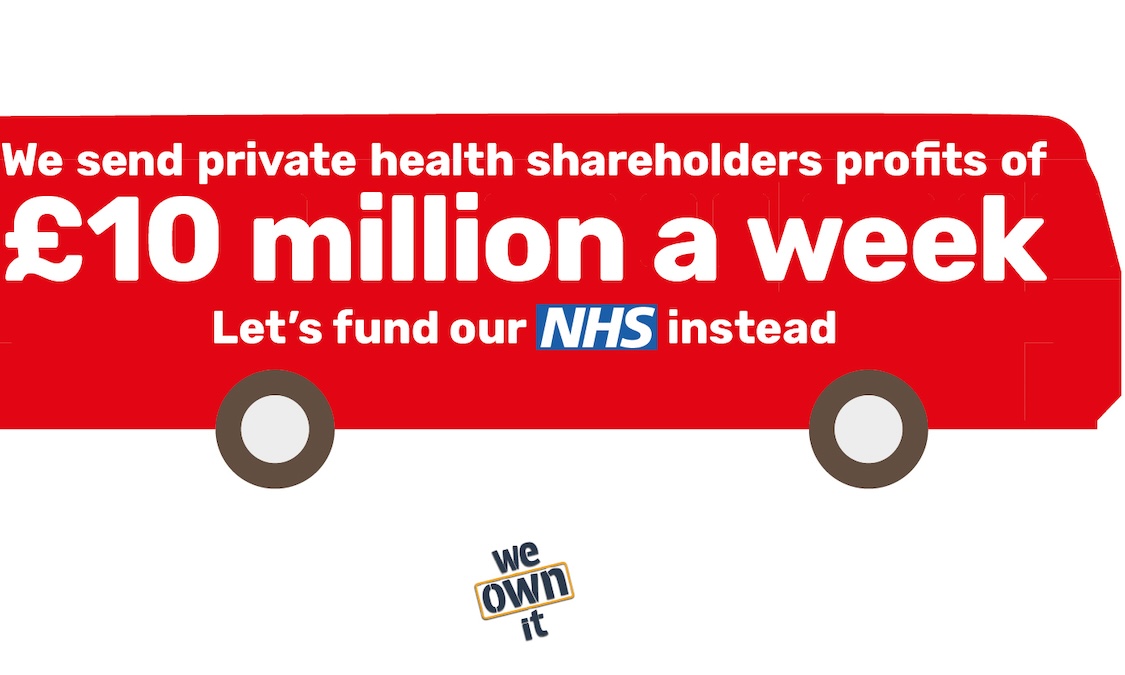His name was Errol Graham. He was a Liverpool supporter and a grandfather. He was 57 years old.
When the bailiffs broke into his house, they found his body weighing a mere 30kg (4.5 stone). An inquest found that the loss of income when his benefits were cut off was likely to have caused “huge distress”.
Errol starved to death. He joins the 120,000 British workers who have already died preventable and unnecessary deaths as a result of benefit cuts, including another disabled man, Mark Wood, who starved to death in 2013 after being found ‘fit for work’ and losing his benefits.
Mr Graham, a disabled and vulnerable worker suffering from acute anxiety, had had his benefits wrongly stopped. His body was discovered on 20 June 2018 when bailiffs arrived at his Nottingham council flat to evict him for non-payment of rent.
This abomination did not make the headlines; it was not on the lips of politicians and commentators, who were far too busy trying to stop Brexit; it was quietly hushed up. What should have been a matter of national outrage only finally seeped into the light of day when the inquest was reported on by the Disability News Service website this January – a year and a half after Errol’s death.
At that point, one or two national newspapers ran minor inside stories. The front pages, meanwhile, continued to be plastered with hysterical anti-China ravings concerning the threat of the coronavirus, which the Chinese government and people are working overtime to contain and which has so far killed no-one in Britain (13 people at the time of writing having been identified as being infected and most having quickly recovered).
Given the way the ‘welfare’ system in Britain now operates, Errol Graham is unlikely to be the last worker to meet such a terrible end. And Britain’s newspapers and media pundits are unlikely to break their silence over the existence of this very real (and entirely preventable) pandemic that is stalking our ‘civilised’ land.
DWP’s reign of terror
The Department of Work and Pensions (DWP) acts as a hindrance rather than a help to people like Errol. Its default position is that no-one is deserving of a penny in support unless they can win an appeal against its decision to deny them benefits.
As our rulers cast around for ways to pass the burden of the capitalist economic crisis onto the backs of the poor, they have converted Britain’s benefits system (meant to act as a safety net for those whom capitalism is unable to employ) into a source of profit for the outsourced companies that run it and an act of ritual humiliation for the poor – the 21st century’s answer to the public floggings of old.
According to the Disability Rights website:
– Across the entire benefits system, 71 percent of appeals overturn an unfavourable in favour of the claimant.
– Disability living allowance appeals have a 67 percent success rate.
– Universal credit appeals have a 65 percent success rate.
The fact that so many decisions are being overturned clearly shows that the welfare system has become a de facto barrier to claimants getting even the little support they are currently entitled to.
One could assume from this that the DWP’s assessors are all terrible at their jobs. Or we could conclude that the privatised contractors working for the DWP are deliberately putting bureaucratic obstacles in the way of those seeking help.
In fact, it was revealed two years ago by the Daily Mail that benefit assessors get paid bonuses for rushing through their assessments. (Dan Bloom, 14 May 2018)
If that weren’t enough, we now find that the DWP is sending misleading notes to doctors, leading them to submit incorrect letters in return.
The benefit appeals process, started by a worker whose claim for support is refused, begins with a ‘mandatory reconsideration’. If this is unsuccessful, as the overwhelming majority are, claimants can then lodge an appeal.
At this point they are then permitted to reclaim employment support allowance (ESA) whilst waiting for the appeal to be heard. But in order to reclaim ESA, they have to produce a medical statement (known as a ‘fit note’) from their GP.
Until recently, the information issued to GPs by the DWP (in form ESA65B) when a claimant was pronounced fit for work made it clear that no further notes should be issued to that patient except in certain circumstances.
It explained that the patient had been found fit for work and that “this means you do not have to give your patient any more medical statements for employment and support allowance purposes. But you may have to give your patient new medical statements if they decide to appeal against our decision, their condition gets significantly worse, or they have a new medical condition.” (Our emphasis)
However, the new letter being sent to GPs states merely: “As a result of this decision … you do not need to provide any more fit notes … relating to disability/health condition for ESA purposes.” No mention of any circumstances in which fit notes should be issued is made at all.
The Zacchaeus 2000 Trust (Z2K) charity has highlighted this change, having become aware of it through a claimant called Louis, who had lodged an appeal against an ESA decision that he was fit for work. Louis’s GP flatly refused to issue him a new medical note because, he said, he had received a letter from the DWP instructing him not to do so, no matter how ill his patient was.
According to Z2K, the decision to omit mention of the need to issue medical notes in an appeal situation “is irresponsible to the point of spreading misinformation” to GPs.
“Louis had to register at a different practice in order to find a GP willing to write him a fit note, despite there being no question that it was medically appropriate to do so. Louis did not have enough money to buy food while this was being resolved.” (DWP systematically spreads misinformation to doctors about their patients’ disability benefits, 08 May 2018, our emphasis)
UN: Poverty in Britain ‘a disgrace, a social calamity and an economic disaster’
At every turn, we see the benefit system in Britain becoming a barrier and a hurdle to those trying to access help. The United Nations human rights rapporteur last year issued a scathing report on austerity in Britain:
“The social safety net has been badly damaged by drastic cuts to local authorities’ budgets, which have eliminated many social services, reduced policing services, closed libraries in record numbers, shrunk community and youth centres and sold off public spaces and buildings.
“The bottom line is that much of the glue that has held British society together since the second world war has been deliberately removed and replaced with a harsh and uncaring ethos. A booming economy, high employment and a budget surplus have not reversed austerity, a policy pursued more as an ideological than an economic agenda.” (Report of the special rapporteur on extreme poverty and human rights, 23 April 2019, our emphasis)
That someone working for a bourgeois institution like the United Nations, which has in many respects been turned into an arm of US imperialism, feels able to label the systematic murder and enforced poverty that austerity has inflicted on the British people as ‘ideological’ speaks volumes for how bad the situation has become.
The only explanations we can offer for such forthright criticism are that: 1. the depth of the problem is simply too great to be ignored, and 2. labelling austerity as ‘ideological’, whilst a shocking indictment of the current government, helps to divert attention from the fact that it is the capitalist system as a whole that is responsible for economic crisis and austerity, not a particular political party or governing cabinet.
The report continued: “The United Kingdom, the world’s fifth-largest economy, is a leading centre of global finance, boasts a ‘fundamentally strong’ economy and currently enjoys record low levels of unemployment. But despite such prosperity, one fifth of its population (14 million people) live in poverty.
“Four million of those are more than 50 percent below the poverty line and 1.5 million experienced destitution in 2017, unable to afford basic essentials.
“Following drastic changes in government economic policy beginning in 2010, the two preceding decades of progress in tackling child and pensioner poverty have begun to unravel and poverty is again on the rise.
“Relative child poverty rates are expected to increase by 7 percent between 2015 and 2021 and overall child poverty rates to reach close to 40 percent. For almost one in every two children to be poor in 21st-century Britain would not just be a disgrace, but a social calamity and an economic disaster rolled into one.” (Our emphasis)
Whenever a community or campaigners are organising to defend such staple rights as education, properly-paid teachers, adequate funding for the NHS, decent community services, etc, we are met with clamour from both the Labourites and Tories: “How are we going to pay for this?”
This same question is oddly missing every time these people declare a new war. By 2013, Britain had spent £37bn on the Afghanistan war.
A study by BMJ Open in 2017 linked austerity to 120,000 deaths. It is a tragedy that there have been 120,000 Errol Grahams. And it is an indictment of the capitalist system that their deaths – a very real pandemic – didn’t even make minor headline news. We can only imagine the headlines if similar numbers of people were dying as a result of social deprivation in China.
Capitalism is committing social murder on a mass scale
Friedrich Engels, one of the founders of scientific socialism, long ago pointed out that the steady stream of avoidable deaths under capitalism should be regarded as crimes just as much as are individual acts of murder.
“When one individual inflicts bodily injury upon another such that death results, we call the deed manslaughter; when the assailant knew in advance that the injury would be fatal, we call his deed murder.
“But when society places hundreds of proletarians in such a position that they inevitably meet a too early and an unnatural death, one which is quite as much a death by violence as that by the sword or bullet; when it deprives thousands of the necessaries of life, places them under conditions in which they cannot live – forces them, through the strong arm of the law, to remain in such conditions until that death ensues which is the inevitable consequence – knows that these thousands of victims must perish, and yet permits these conditions to remain, its deed is murder just as surely as the deed of the single individual; disguised, malicious murder, murder against which none can defend himself, which does not seem what it is, because no man sees the murderer, because the death of the victim seems a natural one, since the offence is more one of omission than of commission. But murder it remains.” (Condition of the Working Class in England, 1845)
The only effective method against this onslaught is to organise communities to stand up against what the capitalist class is demanding of us: that workers work longer and harder for less, with few or no rights or protections.
The working class need to organise itself against these attacks on its right to life in whatever form they take. Small victories in this struggle will help us to gain the confidence to demand that the working class take the reins of power altogether.
Let the post-WW2 consensus be a warning to workers infatuated with social democracy; a reminder that all gains made by workers under capitalist conditions can – and inevitably will – be reversed.
We are currently witnessing the wholesale transformation of the NHS into a privatised American insurance-style system, for example. And, just as workers in the USA have seen, this will inevitably leave a whole swathe of the population without any healthcare at all – allowed to sicken and die for want of attention they cannot afford to access.
In the long run, we can only ensure our gains – whether in employment, housing, education or healthcare – are made secure by raising the working class to the position of a new ruling class.
With one-fifth of the population in poverty and almost one in two children in poverty, questions have to be asked. Is this socioeconomic system fit for purpose? Is capitalism capable of providing even a basic level of dignity to every worker, with all the wealth it has at its disposal – wealth that was created by those self-same workers?
As bailiffs break into homes to find our vulnerable citizens starving to death, we can only answer a resounding “No”.














